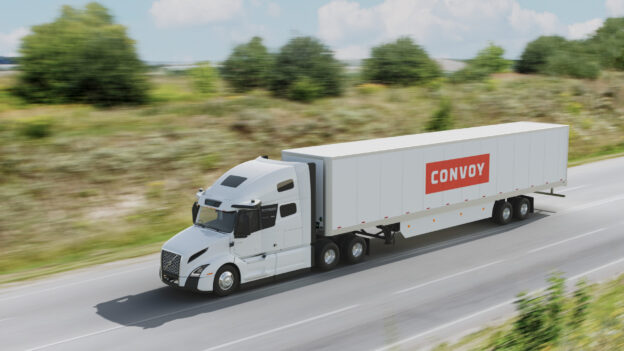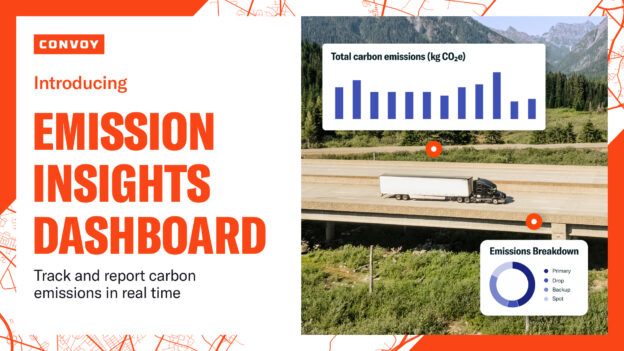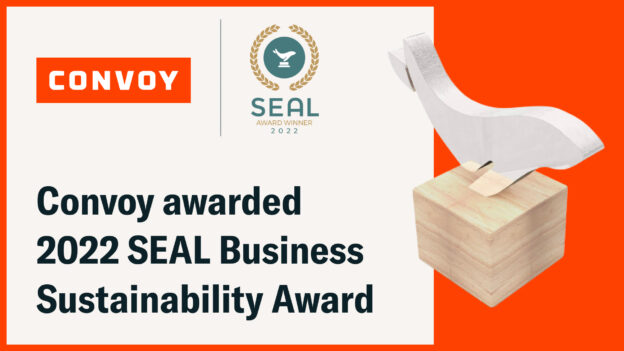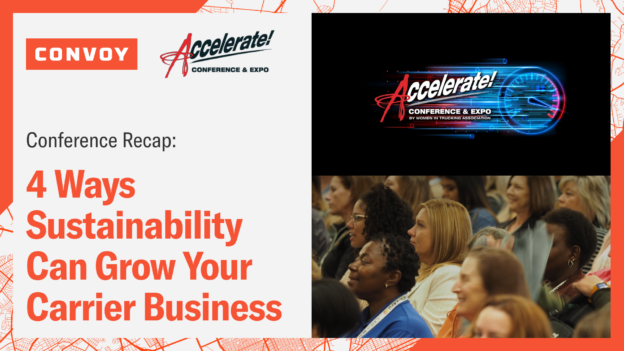Ardagh Group’s John Sadlier on Embedding Sustainability
Sustainability • Published on February 15, 2021
When you think about a company which produces metal and glass, the concept of recycling is practically a given. Glass and metals are among the world’s most recycled materials, while aluminum is, in fact, actually one of the most efficiently recycled materials.
I recently met with John Sadlier, Chief Sustainability Officer at Ardagh Group. Ardagh Group is a Luxembourg-based leading supplier of value-added, infinitely recyclable, metal and glass packaging solutions for the world’s leading brands. If you drank a canned beverage, from a bottle of wine or beer, or even used a condiment product, chances are, you have held an Ardagh Group product in your hand.
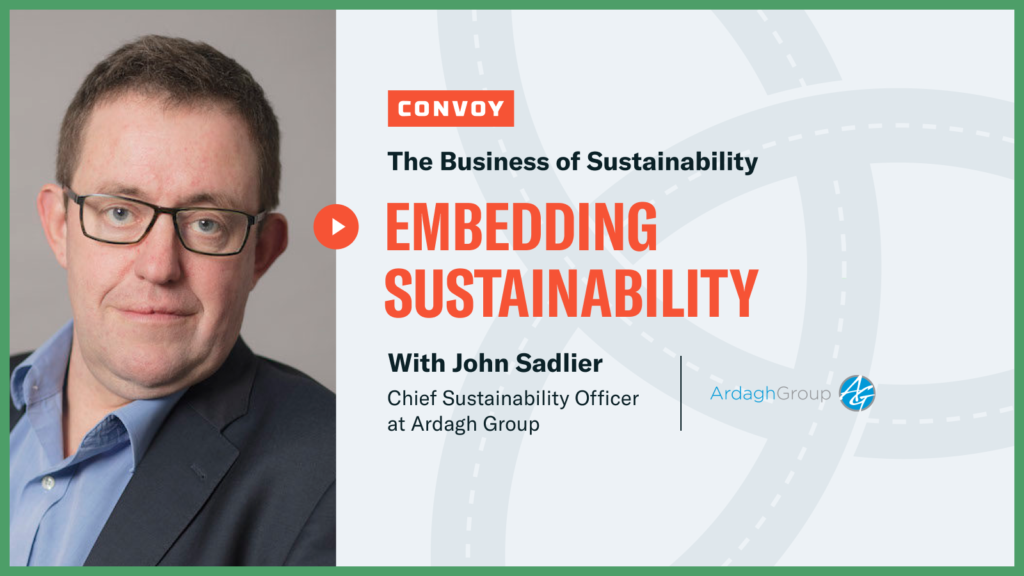
John discussed how his role evolved from procurement to sustainability, how the company designed its sustainability agenda and measures its progress, the ways in which they engage a 16,000-employee organization, and how Ardagh Group values sustainability. His key takeaways follow.
- When It Is TIme To Create A Full-Time Position Responsible For Sustainability : The chief sustainability officer at Ardagh Group is a new role. Sustainability has always been at the core of what we do. Recycling glass, recycling aluminum, and purchasing aluminum with high recycled content — it has been a constant approach to use less energy to drive value for our business. Additionally, any of the glass or aluminum products where we extract materials through mining, etc. is all done very responsibly. Ardagh Group has always had a core focus on sustainability, but this agenda has picked up and moved so much and continues to evolve so rapidly, that last year a company decision was made to create a full-time sustainability officer role. (1:01)
- How Being Previously Responsible For Procurement Impacts His Role In Sustainability: The benefit of having the procurement experience is procurement touches so many parts of the business. When I jumped into the sustainability role, I really had a good overview of what was happening across our business. I knew where some of the key touch points were and that our suppliers were going to be a key part in driving our non-emission based sustainability targets. Perhaps my eyes were shut in the times of procurement, and now I can see just how fast this agenda is moving, how big it’s getting and how many parties are pushing this agenda, including President Biden, who really has done an awful lot in a few weeks so far. It is really quite eye opening as to just how large this agenda is, what’s happening, and what’s pushing it. (2:16)
- Setting A Sustainability Agenda: We had a lot of good work already done, so there was a nice foundation upon which to move forward. The next decision was to determine what the key touch points for our data in terms of sustainability are. When we came up with our strategy, we broke it down into three key pillars: emissions, ecology, and social. For emissions, we do use a lot of fossil fuels and our suppliers use fossil fuels in the manufacture of the products we sell. This is the area where we need to focus, where we need to drive, and where we need to make really good improvement. When it comes to our ecology story, that’s a good story for the materials we use. They’re infinitely recyclable. The extraction of raw materials is done very responsibly, but we can improve and make it better. I really feel that’s a really positive tale from the products that we manufacture. Then when it came to the social side of sustainability, this is a part where COVID has accelerated the agenda faster than any of the other parts of sustainability. We’ve seen so many people who’ve suffered upheaval through the whole COVID pandemic that this is becoming a key focus of sustainability. Within Ardagh Group, we have addressed this both in terms of our employees — which is within our four walls — and also the communities where we operate and what we can do to be a good employer within our community. (3:54)
- How You Know You Are Making Progress Against Your Targets: We had a good foundation in place when I took on this role, so on the environmental side, we do have a system which holds all of the data across all of Ardagh Group consolidated, and it gives us monthly reports in the context of what we’re trying to achieve. It provides accurate and up-to-date information in which to measure our progress. We have signed up for the Science Based Target Institute, which fundamentally equates to a 27% reduction in CO2 over 10 years. But the flip side of it is, if you do nothing now, time can go quite quickly and you can end up realizing, “Hey, I’ve got a problem here to try and meet this.” So, I would say at this moment in time, our primary priority here is what CAN we do? We have got to put a 10-year plan in place which we will work toward meeting these targets and a very clear and granular 10-year plan. (5:50)
- What Engagement Looks Like Across Our Company Including Employees and Supply Chain Partners: For this to be really effective, we have to engage with all of our employees. Roughly speaking, there are 16,000 employees in Ardagh Group. Just like health and safety is engrained across the organization, we have to weave sustainability into the DNA of our business. This is something we do through community involvement projects as well as projects at the plant level. We’ve also had a very good number of engagements with customers and, once again, there is a great interest in continuing the engagement and working together in this area. With the supply base, it’s a mirror image of what we do with our customers. We do need to engage, we do need to be talking about the future, and putting plans in place because our supply base is an absolute critical part to us achieving our goals in this area. It is absolutely critical and those conversations need to take place and we need to plan and work tougher to achieve these goals. (7:30)
- Our Favorite Sustainability Project Currently: We are working on a project at the moment called The Furnace of the Future. Glass furnaces typically have been 80% fossil fueled and 20% by electricity. Rough numbers. We’re working on a project that will invert these stats and get you to a 20% fossil fuel, 80% electricity breakdown. And then driving that electricity toward being from a renewable source. Not only is it Ardagh Group, but we’re also working with a consortium of 20 glass container manufacturers in Europe through a project coordinated by FEBI, the European glass container manufacturer association and we’re currently applying for an EU innovation grant to help us with that. It’s a super exciting project. There is a huge amount of innovation involved. We’re all really excited about this project and it’s a lot of work. It’s not going to be easy to achieve, but it’s really important that we do it because if we’re serious about this agenda, we have to make the progress and we have to get this transition away from fossil fuels. (9:09)
- The Most Challenging Aspect Of Sustainability So Far: Weaving sustainability into the DNA of our business. Sixteen thousand employees across Europe, North America, and South America — that’s the biggest challenge. How do we do that? How do we get every employee in Ardagh Group engaged in this agenda? Community involvement, factory involvement — there are a whole bunch of levers to be pulled there, but that’s a huge journey to try and reach all of the employees, get all of them excited, and really get this agenda where we need it to be. (11:10)
- How Does Ardagh Group Value Sustainability: You can look at that offensively and defensively. Defensively, this agenda is growing. People are getting more conscious about businesses that are sustainable. They’re circular. They really are leaving the planet in as good a shape as we can when we depart it. So that’s the defensive side. It’s really important that we are as sustainable or circular as we can so that we play our part in what the consumer is now demanding. Looking at it more offensively, it’s an opportunity. We’ve got super materials and the more sustainable we can make those materials, the more value we can give society with those materials. So, I do look at it both ways. The optimist in me would look more toward the offensive side — we’ve got these wonderful materials — how can we put more and more products into these materials because they’re sustainable and, ultimately, add greater value to society? (12:15)
- The One Thing We Want People To Know About Sustainability At Ardagh Group: The materials we sell the products in — glass, aluminum, steel. These are infinitely recyclable materials. You can recycle them again and again without any loss in properties. The more people put those materials back into the recycling infrastructure, the more we can use them and the more circular we become and the more gentle we are in the overall environment. That’s the core message: “Hey, next time you drink from an Ardagh product, don’t forget to recycle it.” (13:35)
TRANSCRIPTION
Jennifer Wong: Hi everyone. Welcome back to The Business of Sustainability. Today we have John Sadlier joining us, the chief sustainability officer at Ardagh Group. Ardagh Group is one of the world’s largest metal and glass packaging companies. I’m based here in Seattle, so here in King County, Ardagh Group recycles all of our glass waste. It equals about a million bottles a day. If you’ve ever had wine produced in Washington, you’ve almost certainly used one of Ardagh’s products. John, welcome. Thank you so much for taking time to share your sustainability initiatives with us today.
John Sadlier: You’re very welcome. I’m absolutely delighted to be here Jennifer.
Jennifer: John, can you tell me about your role and responsibilities as the chief sustainability officer at Ardagh Group?
John: Yes, the role as a chief sustainability officer is a new role. That being said, sustainability has always been at the core of what we do. From recycles of glass, recycling of aluminum and the purchase of aluminum with high recycled content and that constant approach to use less energy to drive value for our business. And also, any of the products in our glass or aluminum where we extract materials through mining, etc. is all done very responsibly. So, I’d like to say that Ardagh has always had a core focus on sustainability. But I think it’s also fair to say this agenda has picked up and moved so much and continues to evolve so much that last year a company decision was made to make a full-time sustainability officer role. And I was asked by our chairman to take that role, so I was delighted to take and that’s where [2:00] we’re at today.
Jennifer: You were previously the chief procurement officer before taking on the sustainability role. How has that role influenced your perspective on sustainability?
John: I think first of all the big thing, the benefit of having the procurement experience is I think procurement touches so many parts of the business that when I jumped into the sustainability role, I really had a good overview of what was happening across our business. I knew where some of the key touch points were and then also knew the supply waste greater than 50% of our CO2 emissions are at the supply base and also with the supply base as we move through waste, water, and some of the other non-emission-based sustainability targets, our suppliers are going to be such a key part in driving that, likewise yourself in Convoy, you know, as a logistics provider. You guys are just core in helping us on the sustainability journey. So, I think that has been a big benefit in jumping into the role. I think once I am in the role, you know, what has kind of opened my eyes, etc. that maybe they were shut in the times of procurement, I think just how fast this agenda is moving. Just how big it’s moving. Just how many parties are pushing this agenda, including your President Biden, who really has done an awful lot in a few weeks so far. So, I think really it’s more eye opening into just how large this agenda is. What’s happening and what’s pushing it.
Jennifer: Tell me about the sustainability agenda. When you first took on this role, how did you go about setting the strategies and goal for this new organization at Ardagh?
John: Well, I suppose the first thing was we had a lot of good work done so there was a nice foundation upon which to move forward. [4:00] Second was really, what are the key touch points for our data in terms of sustainability. So, when we can come up with our strategy, we break it down into three key pillars: emissions, ecology, social. Emissions we do use a lot of fossil fuels and our suppliers use fossil fuels in the manufacture of the products we sell. You know, including yourselves with the trucks, still very fossil fuel driven. And so that is the area where we need to focus, we need to drive, and we need to make really good improvement. When it comes to our ecology story, I think that’s a good story for the materials that we use. They’re infinitely recyclable. Like I said, the extraction of raw materials is done very responsibly whereas we can improve. We can make it better. I really feel that’s a really positive tale from the products that we manufacture. Then when it came to the social side of sustainability, this is a part where I think Covid has accelerated the agenda faster than any of the other parts of sustainability. We’ve seen so many people who’ve suffered upheave through the whole Covid pandemic that really, this is becoming a key focus of sustainability. And within Ardagh, we have addressed that both in terms of our employees, which is within our four walls, and also the communities where we operate and what we can do to be a good employer within our community.
Jennifer: So those are three incredible areas to make progress against. As you’re going about your execution day to day, how do you know when you’re making progress against those three areas?
John: Well, first of all, we have, once again like I said, there was a good foundation in place when I did take this role so on the environmental side, we do have a system [6:00] which holds all the data across all of Ardagh consolidated and gives us, I wouldn’t say real time, its once a month we do it, but that’s adequate in the context of what we’re trying to achieve. It gives us accurate and up to date information where we have the information in which to measure our progress. We have signed up for Science Based Target Institute, which fundamentally equates to a 27% reduction in CO2 over 10 years. 10 years being a very long time, Jennifer. But the flip side of it is, you know, if you do nothing now, time can go quite quickly and you can end up realizing, “Hey, you know, I’ve got a problem here to try and meet this.” So, I would say at this moment in time, our primary priority here is what can we do…we’ve got to put a 10-year plan in place which we will work to in terms of meeting this goal. Meeting these targets and a very clear and granular 10-year plan. And that’s so important for us. And I think for anybody that has signed up to the science-based targets.
Jennifer: And tell me how your employees and supply chain partners have been engaged in sustainability as well. You did mention, like 50% of your emissions are coming from your supply chain. It sounds like employees are a part of this story as well. What does that engagement look like?
John: I think for this to be really effective we have to engage with all of our employees. So roughly speaking, there are 16 thousand employees in Ardagh. Okay? And just like health and safety, and at this stage I’d say that is engrained across the organization, we have to weave sustainability into the DNA of our business. And that’s something that we do through community involvement projects, to projects at the plant level. Something we are really picking up is we are pushing this [8:00] agenda forward, something that is very important. Then within our customers, we’ve had a very good number of engagements with the customers and once again, there is a great interest in continuing the engagement and working together in this area. And also, I’d say with the supply base, it’s a mirror image of what we do with our customers. We do need to engage, we do need to be talking about the future, putting plans in place because our supply base is an absolute critical part to us achieving our goals in this area. And, you know, you guys as a supplier at Convoy, you’re absolutely critical and those conversations need to take place and we need to plan, we need to work tougher to achieve these goals.
Jennifer: And we’re excited to collaborate even further this coming year. This might be one of the toughest questions to answer, but what would you say is your favorite project that your team is working on right now? What are you most excited about?
John: I’d have to say, Jennifer. That’s an easy question to answer actually.
Jennifer: Easy! Alright.
John: And I’ll tell you why. What we’re working on at the moment is a project we call The Furnace of the Future. Okay? So, glass furnaces typically have been 80% fossil fueled, 20% electricity. Rough numbers. We’re working on a project that will inverse that and get you to a 20% fossil fuel, 80% electricity. And then driving that electricity towards being from a renewable source. Not only is it Ardagh, but we’re also working with a consortium of 20 glass container manufacturers in Europe. The project has been coordinated by FEBI, the European [10:00] glass container manufacturer association and we’re currently applying for an EU innovation grant to help us with that. It’s a super exciting project. There is a huge amount of innovation involved. We’re all really excited about this project. And it’s a lot of work. It’s not going to be easy to achieve it but its real important that we do it because we’ve got to, you know, if we’re serious about this agenda we have to make the progress and we have to get this transition away from fossil fuels. So very easy question, Jennifer.
Jennifer: You have mentioned all of these different projects to date, what’s been the most challenging aspect of sustainability so far?
John: Challenging…I think to answer that question right, you know, I do see such an important part of my role being weaving sustainability into the DNA of our business, okay? 16,000 employees, right, across Europe, North America, South America, that’s the biggest challenge. How do we do that? How do we get every employee in Ardagh excited? Every employee in Ardagh engaged in this agenda? And that is, to me, the single biggest challenge. Like I said, community involvement, factory involvement, to an extent novice, etc. There are a whole bunch of levers to be pulled there, but that’s a huge journey to try and reach all of the employees, get all of them excited, and really get this agenda where we need to be.
Jennifer: Right. So, you’ve made a huge invest, or Ardagh has made a huge investment [12:00] in sustainability, how does all of this effort and these resources really add to the value for the business. What does that mean for Ardagh in terms of the value of sustainability?
John: I think you can look at that offensively and defensively. You know, defensively look, this agenda is growing. People are getting more conscious about businesses that are sustainable. They’re circular. They really are, let’s say, you know, leaving the planet in as a good a shape as we can when we depart it, okay? So that’s the defensive side. It’s really important that we are as sustainable or circular as we can so that we play our part in what the consumer is now demanding. Looking at it more offensively, it’s an opportunity. We’ve got super materials and the more sustainable we can make those materials, the more value we can give society with those materials. So, I do kind of look at it both ways. I guess the optimist in me would look more toward the offensive side. You know, we’ve got these wonderful materials. How can we put more and more products into these materials because they’re sustainable? And like I said, ultimately, add greater value to society.
Jennifer: For a person using an Ardagh product, what is the one thing that you want them to know about sustainability at the company?
John: I think it’s the material. The materials that we sell the products in, right? Glass, aluminum, steel. These are infinitely recyclable materials. Okay? You can recycle them again and again without any loss in properties. The more people put those materials back into the recycling infrastructure, the more we can use them and the more circular we become. [14:00] And like I said, the more gentle, etc. we are in the overall environment. I think that’s the core message is, “Hey, next time you drink from an Ardagh product, don’t forget to recycle it.”
Jennifer: Awesome, great message. Easy to remember, hopefully for most people. Well, John, thank you so much for taking time today. Can I answer any questions for you?
John: Yes, so I told you what the most exciting we’re working on at the moment is. Maybe the second most exciting project that I personally have a huge interest in seeing is this transition to a lower carbon transportation in society. And so, the question to you Jennifer as one of our key suppliers in this area, you know, tell me what’s happening in terms of the decarbonizing in the transport industry via battery or hydrogen driven trucks. I’d so much like to hear about it.
Jennifer: Sure, happy to give that point of view and like yourself, I think there is no better time to be in the transportation industry. There is just so much innovation happening through technology today. So, in Convoy’s role, we are really focused on kind of helping companies make progress today. Where there is so much waste that is happening because companies are not finding the best positioned truck for any given shipment. So, when we are able to use technology to optimize the network, today we are already reducing carbon emissions by 45% for our customers. I think there’s immense opportunity in the future to transform trucking with alternative fuels, like you mentioned. Kind of hydro and battery technologies and we’re still in the early stages of innovation in those areas, but progress is happening. I think the only concern today is those industry leading models that you hear about in the news, they still have limited mile ranges, they have long charging times, they still have an immature [16:00] charging infrastructure and oftentimes they can be almost double the cost of a traditional truck. So today, it’s really only realistic for a handful of trucking companies. They have deep access to capital, and they do have the luxury to invest in equipment. The area that we’re most excited to be a part of in the future is to enable small trucking companies and owner-operators which are about 90% of the trucking supply here in the United States to be able to access green truck technology as well. Because today they have limited access to financing. They need trucks that are flexible, that can go further, and that can fill up quickly. So, we want to make an effort to be able to have these green truck technologies available to the mainstream trucking supply or else it might only be associated with the large enterprises that get to take advantage of this technology versus being able to have a huge impact in reducing carbon emissions if it’s available to both small, as well as large companies.
John: Yeah, I couldn’t agree more with you in terms of it is still, you know, it’s quite a cost and quite a number of challenges with the green trucking, as you call it. One of the items we apply when we look at sustainability is the economics of it. And really sustainability is sustainable if it is economically viable, okay? So once the green trucks become viable, maybe that becomes the most exciting thing that I will be working on and I will be so happy to work with you guys to be the, you know, to be there driving this agenda through. So, let’s watch that [18:00] space, and once it becomes the right time, let’s jump on it and get moving on it.
Jennifer: Excellent. Thank you again, John. This was a fun conversation today.
John: Thank you very much, Jennifer. I think it’s great working with you guys at Convoy and I look forward to the future together.
